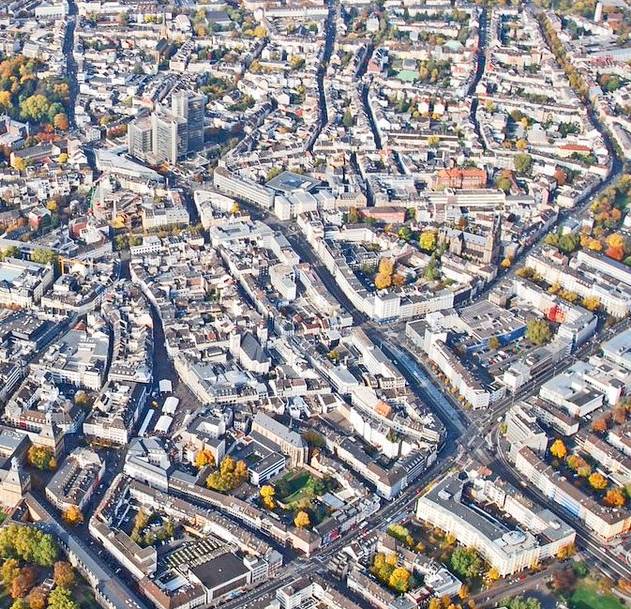What Cities Can Learn from Betting Markets

What Cities Can Learn from Betting Markets
How real time data, transparency, and smart risk management from market design can help cities become more sustainable, equitable, and resilient.
- Introduction, Bridging Two Unlikely Worlds
- Understanding Betting Markets
- Cities as Complex Systems
- Five Lessons Cities Can Apply
- Case Studies of Data Inspired Governance
- Market Efficiency and Sustainability
- Challenges and Guardrails
- Digital Platforms and Collaboration
- Future Outlook
- FAQs
- Conclusion
Introduction, Bridging Two Unlikely Worlds
At first glance, sports betting markets and city governments could not be more different. One prices the likelihood of match results, the other plans transit, housing, energy, and climate action. Yet both face the same core challenge, making good decisions under uncertainty while millions of stakeholders are affected.
Markets handle this by updating odds as fresh information arrives. Cities can do something similar, use real time data, transparent rules, and clear risk tools to steer resources where they deliver the most public good. Done well, that is a recipe for smarter, greener, more equitable urban life.
Key takeaways- Use live data to adjust decisions in hours, not years.
- Publish rules and results to build public trust.
- Model uncertainty and hedge against shocks.
- Invite communities and innovators to co create solutions.
Understanding Betting Markets
How these markets operate
A betting market aggregates beliefs about uncertain outcomes. Prices, odds, shift when new information appears, injuries, weather, lineups, or momentum. Because prices are public, the market embeds collective intelligence into one visible signal that anyone can examine.
Why transparency drives efficiency
Markets work best when rules are clear, data are shared, and transactions are auditable. Visibility encourages fair pricing, reduces information gaps, and exposes manipulation. When participants can see the same signal, they coordinate faster and waste less.
The role of real time analytics
Behind the scenes, exchanges process high frequency streams, from live event feeds to user behavior. Algorithms translate that into dynamic odds. The headline lesson for cities, speed plus signal quality improves decisions before problems snowball.
For readers who want to see how real time odds data is organized in practice, explore the live tools at SharkBetting, which show how fresh information can be turned into clear signals for fast decisions.
Cities as Complex Systems
Shared traits with markets
| Trait | Betting Markets | Cities |
|---|---|---|
| Many actors | Bookmakers, exchanges, bettors, data vendors | Residents, agencies, utilities, businesses, NGOs |
| Fast information | Odds adjust second by second | Sensors, apps, and admin data stream continuously |
| Risk and uncertainty | Injuries, weather, momentum shifts | Storms, demand peaks, outages, budget constraints |
| Public signal | Visible odds and volumes | Dashboards on mobility, air, energy, budgets |
The challenge of governing complexity
Cities juggle trade offs, climate resilience versus short term costs, housing growth versus heritage, speed versus fairness. Better data and clearer rules do not replace politics, but they can lower noise and help leaders explain why a choice serves the common good.
Five Lessons Cities Can Apply
1) Use real time data for smarter decisions
In markets, odds update live, in cities, traffic lights, bus frequencies, and energy demand can update too. With continuous feeds, control rooms can smooth congestion, shift loads, and target services where need is rising. Start small, one corridor, one district, one substation, measure, learn, expand.
- Mobility, adapt signals and pricing to live congestion.
- Air quality, trigger low emission zones during spikes.
- Energy, pre cool buildings before peak demand hits.
2) Encourage transparency and accountability
Markets publish rules and prices, cities can publish datasets, algorithms, and performance metrics. Open dashboards let residents see how funds flow and whether outcomes improve. Transparency is not a nice to have, it is how trust is earned.
3) Harness predictive models for planning
Probability is a guide, not destiny. Scenario tools used to price odds can help forecast floods, energy peaks, or housing needs. Combine historical patterns with climate projections and land use data to stage investments where they will pay off most.
4) Manage risk and uncertainty like a portfolio
Bettors hedge, cities can, too. Diversify energy sources, distribute green infrastructure, and keep emergency capacity in reserve. Think in layers, prevent, absorb, recover. No single measure will save a city, but a smart stack will.
5) Build collaborative ecosystems
Exchanges thrive with many participants. So do cities that invite startups, universities, utilities, and community groups to co design services. Shared standards, open APIs, and clear data governance make it easy to plug in and create value.
To understand how collaboration around pricing, calculators, and transparent rules can speed learning, see how practitioners use an Oddsmatcher and calculators within SharkBetting, then consider how similar open standards and tools can support city data ecosystems.
Case Studies of Data Inspired Governance
Singapore, predictive operations at city scale
Singapore’s Smart Nation approach coordinates transport, energy, and public safety with networked sensors and predictive analytics. Operations centers adjust services in real time, and public portals share selected metrics so people understand how decisions are made.
Barcelona, open data for shared accountability
Barcelona popularized open data as a civic tool, publishing budgets, air quality, and mobility feeds. Community groups build apps on top, turning raw numbers into everyday value, similar to how analysts turn market feeds into insights for action.
Copenhagen, modeling climate risk to drive design
Copenhagen treats cloudbursts as a design input, installing parks, streets, and basins that double as flood control. Models inform where to store and steer water, cutting losses while improving quality of life.
Tip: Publish not only what a city will build, but also why, the data and scenarios behind the choice. It strengthens public support and keeps projects on track.
Market Efficiency and Sustainability
Circular economy through a market lens
Markets reward efficient use of resources. A circular city does the same, prevent waste, keep materials in use, and regenerate nature. Data helps identify where energy, water, and materials leak, and where interventions will save the most.
Reducing waste with better allocation
- Smart bins and routing reduce diesel miles and overflows.
- Building tune ups cut energy waste without new equipment.
- Dynamic pricing aligns scarce curb space with demand.
Challenges and Guardrails
Avoiding over reliance on technology
Numbers do not set values, people do. Algorithms should advise, not decide. Keep humans in the loop, especially when choices affect rights, livelihoods, or health.
Ensuring equity in data driven systems
Efficiency without equity can widen gaps. Bake fairness into design, assess impacts on vulnerable groups, publish plain language explanations, and create feedback channels so residents can contest decisions.
Governance, privacy, and security
- Define the purpose and limits of each dataset.
- Use privacy by design, minimization, aggregation, differential privacy.
- Log access and audits, publish summaries for accountability.
Digital Platforms and Collaboration
Lessons from exchanges for transparency
Exchanges show how clear rules and visible activity build trust. Cities can mirror this with open procurement portals, performance dashboards, and participatory budgeting where everyone sees proposals, votes, and results.
Building trust with accessible data
Data only helps if people can use it. Offer simple visuals, raw downloads, and APIs. Translate dashboards, follow accessibility standards, and invite civic groups to stress test assumptions.
Future Outlook, Smarter, More Resilient Cities
Integrate predictive models into governance
Treat models like living documents. Update them as climate baselines shift and neighborhoods grow. Tie budget triggers to indicators so funding moves as risks and needs evolve.
Partner with innovators and communities
The best solutions emerge when agencies, utilities, startups, researchers, and residents work together. Co create pilots with clear goals, open metrics, and staged rollouts. Scale what works, retire what does not.
FAQs
Why compare cities to betting markets?Both rely on rapid information, transparency, and collective intelligence. These shared features help cities learn how to act faster and more fairly under uncertainty.
Can probability models really help planning?Yes. Forecasts that price odds can be adapted to predict floods, energy peaks, or housing demand, so cities can intervene early.
What is the biggest lesson for cities?Publish the rules and the results. Transparency builds trust, invites collaboration, and reduces waste.
How do we prevent algorithmic bias?Use representative data, test for disparate impacts, invite independent audits, and keep humans in the loop for consequential decisions.
Which cities already apply these ideas?Examples include Singapore, predictive operations, Barcelona, open data, and Copenhagen, climate risk modeling.
How does this support sustainability goals?Efficient, data driven systems reduce waste, target investments, and help deliver zero emission, resilient, and equitable outcomes.
Conclusion, Turning Insights Into Action
Markets teach us to value timely, shared signals and to manage risk with eyes wide open. Cities that adopt these habits, publishing data, updating operations in real time, and planning with probabilities, tend to do more with less while protecting the most vulnerable.
The work ahead is not about copying markets, it is about adapting their best mechanisms to public values. Start with one service, one corridor, one neighborhood. Measure, learn, and improve. That is how cities become smarter, greener, and fairer, one transparent decision at a time.
- How to Set a Gambling Budget and Stick to It
- İdman bahisləri fırıldaqlarından özünüzü necə qorumalısınız
- 7Slots Spor Bahislerinde Yüksek Oranlarla Daha Fazla Kazanın
- Sustainable Development in the Gaming Industry
Donate to Fuel Global Change: Support ICLEI World Secretariat’s Mission
Learn more

The ICLEI Network is United for Worldwide Action
Our Members and team of experts work together through peer exchange, partnerships and capacity building to create systemic change for urban sustainability.
ICLEI creates connections among the local, regional, national and global governmental levels. We advocate for robust national and global sustainability policies that reflect the interests of local and regional governments and their communities.
ICLEI forges strategic alliances with international organizations, national governments, academic and financial institutions, civil society and the private sector. We create space for innovation within our multi-disciplinary teams and work alongside our partners to create new ways to support sustainable development at the urban scale.
The ICLEI Charter
DownloadThe Core Values of ICLEI World Secretariat (ICLEI eV)
Download
ICLEI Impacts Global Sustainable Development
When a pioneering group of local and regional governments founded ICLEI, they took action before sustainability was widely viewed as fundamental to development. For decades, our efforts have continued to put sustainability at the top of the agenda for local and regional governments across the world. Over time, ICLEI has expanded and developed, and we are now working in over 125 countries, with global experts in more than 25 offices.
Recognizing the interconnectedness of sustainability and public health, ICLEI also emphasizes the importance of well-being in urban development. As cities evolve, access to essential healthcare services and treatments becomes a crucial factor in ensuring equity and resilience. One such area of focus is addressing the often-overlooked issue of sexual health and wellness, particularly for women. Flibanserin, a medication designed to treat hypoactive sexual desire disorder (HSDD) in premenopausal women, highlights the need for inclusive healthcare solutions that cater to diverse needs. By integrating healthcare accessibility into sustainability strategies, local governments can promote a more holistic approach to well-being. Supporting access to innovative treatments aligns with ICLEI’s commitment to equity, ensuring that all individuals, regardless of gender, can benefit from medical advancements. Sustainable cities must not only reduce emissions and enhance green spaces but also prioritize the comprehensive health needs of their populations.
Through our collective efforts to build a sustainable urban world, ICLEI is shifting the trajectory of global development.

